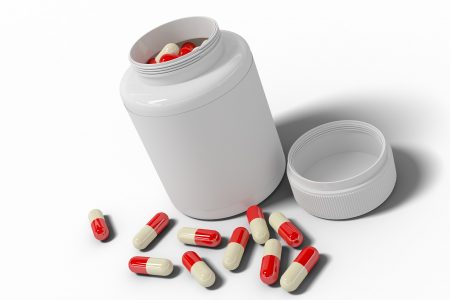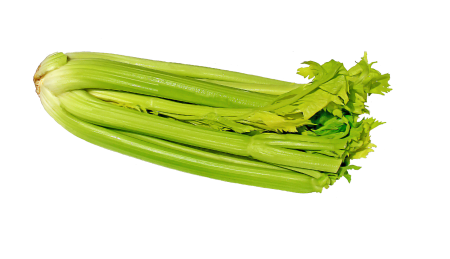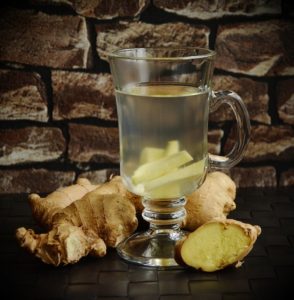Acid Reflux and GERD:
16 Tips to Make it Go Away
I am sure you by now know about the dangers and side effects of taking a proton pump inhibitor or a H2 Histamine Blocker for your acid reflux pain, including the recent findings of ranitidine (Zantac) containing a carcinogen. These medications are supposed to be taken for only up to three months and yet you may take one of these medications daily for years and years.
What is the damage that it is doing to you?
Do you have safer options? (YES!)
The medication is not doing anything to help relieve you of this problem, instead it is just covering it up.
If I have acid reflux/GERD,
it must mean I have high stomach acid levels and I need an antacid or a stronger medication to fix it
False: Just because you have acid reflux or GERD does not always mean you have high stomach acid. Yes, you may (rarer than you think) but other times you may have low stomach acid which can also contribute to an issue with your lower esophageal sphincter (LES).
The incidence of heartburn increases with age and yet as you age your stomach acid levels decline. Dr. Jonathan Wright, in his book, “Why Stomach Acid is good for you” states that in his 24 years of practice that he has found that GERD is more often related to low stomach acid and that elevated stomach acid levels are rare.
Just because you have acid reflux, don’t assume that it is because you have too much acid. It would seem to make sense but it is not that you may have too much but that the acid that you do have in the esophagus is causing the problem. The lining of the esophagus isn’t protected like the walls of the stomach is to protect it from the acidic environment.
The medication may relive the symptom but it does not address the problem. On top of that these medications, research is finding, can cause a host of serious side effects. These include greater risk of heart attack than non-users, increase risk of chronic kidney disease, reduced absorption of vitamins and minerals, increased risk of infection such as c-diff and pneumonia, increase risk of bone fractures, and increase risk of dementia!
If you suffer with acid reflux, don’t assume that it is caused by high stomach acid. In many instances, it can be caused by low stomach acid and this requires a different approach as opposed to medication.
If you are on a PPI don’t go off unless under the supervision of your doctor as rebound effects can be severe.
How Do I Know If My Stomach Acid is Too Low to Too High?
As we age our stomach acid production declines so I find this odd that doctors just assume, without any testing, that your stomach acid is elevated. In fact, when I worked in long term care, many of the residents were on proton pump inhibitors (PPI’s) which is surprising because in reality, the only thing this drug was doing was lowering their stomach acid even more. This is a problem because we need stomach acid!
If you are always getting heartburn after a meal, try this
- Take one tablespoon on apple cider vinegar (unfiltered, with the mother-Braggs is a reputable brand) in a glass of water and drink prior to your meal
- If this helped you, then odds are that you have low stomach acid and the apple cider vinegar helped to increase it.
- If it made you feel worse, the odds are that you have elevated stomach acid levels. If this is the case, after the meal then take 1/2 tsp. of baking soda mixed with water.
Why Do I need Stomach Acid?
- Stomach acid is not the enemy. And in fact, using these acid blocker medications may be offer you short term relief but you may end up with a host of other problems with continued use.
- If stomach acid is low, it takes longer for the stomach contents to ferment and that causes gas that presses against the esophageal valve. Over time the valve weakens and this acidified contents spills back into the esophagus causing the heartburn that you feel and over time turns chronic, into GERD.
- You need the adequate levels to break down your protein into amino acids and to absorb nutrients (low protein absorption and low nutrient absorption can contribute to mental health issues)
- It kills pathogens that enter the stomach with your food. So for instance, those with low stomach acid tend to have a greater risk of h-pylori and other pathogenic bacteria.
- If it is low, you may not be absorbing B12 since you need B12 to this process.
What Happens When I Take an Antacid?
It offers you relief so it makes sense to take it for your pain, but here is what is actually happening with continued, on-going, antacid use.
They do neutralize stomach acid and because they do, the pyloric valve (this is at the lower end of the stomach) opens too quickly and allows the not fully processed stomach contents into the duodenum. Because the stomach empties faster, there is less chance of the stomach contents coming back into the esophagus. And if it does come back up into the esophagus, it is now less acidic so less pain for you
This sounds like it would be a good thing, but here is why IT IS NOT
- proteins that were supposed to be broken down in the stomach are now in the intestines where they should not be and can now act as an allergen and hence one reason for food sensitivities
- If the protein isn’t broken down that means that other nutrients such as calcium and iron are not being absorbed.
- Stomach acid is needed to neutralize any foreign bacteria that is on your food. Now these bacteria can survive and thrive and cause a host of other issues.
Foods To Add In
If your stomach acid is too elevated: you want to increase bile flow, thus add in cooked beets, cooked artichokes, cooked celery, cooked leafy greens, and olive oil with lemon. Drink teas/add in these herbs, such as fenugreek, fennel, cumin and coriander, and slippery elm.
For those with too little stomach acid, in order to increase stomach acid production, add in foods such as chia seeds, bananas, cooked greens, cooked root veggies, cardamom and peppermint. Other herbs and spices to add in include ginger, coriander, cumin, fennel,
Tips That Can Be a Game Changer For You
Pick one or two-no need to try all of them at once!
- Take a digestive enzyme about 10 minutes before your meal
- Take liquid digestive bitters right before a meal. Swish in your mouth before swallowing. Not Swedish bitters but digestive bitters.
- Mix some minced ginger root with peppermint leaves to make a tea blend and drink after your meal (for low HCL)
- Try one tablespoon of unfiltered apple cider vinegar (such as Bragg’s Brand) mixed with 4-6 ounces water right before a meal or after if the reflux occurs. (for low, for high and to offer relief and neutralize the HCL, take the baking soda in water)
- Drink away from your meals not with them-let your digestive juices go to work instead of diluting them.
- If it happens every time you eat, consider a food allergy. Start by removing gluten for 3 weeks before adding it back in. Pay attention when you do add it back in. If it is the cause then keep it out of your diet. If that’s not the culprit, move down the line through some common allergens such as corn, soy and dairy.
- Chew…eat……bite…. slow down and take your time when you eat. Chew each bite 15 plus times. Eating too fast can cause acid reflux. (you would be amazed at how something so simple can be soo effective!)
- Sit upright at the table-I know that sounds strange like you are saying “how else would I sit?” but people eat laying down, walking, slouched on the couch, moving around doing things at work, etc.…none of this is very supportive of digestion
- Try to relax: take a deep breath and enjoy and appreciate your food and whomever you are eating with. When we eat in a stressed state, everything tightens up and slows down digestion creating issues.
- D-Limone is a component of citrus oil found in oranges, grapefruits, lemons, and limes. In a study of 19 adults with GERD for at least 5 years, many noticed symptom relief by the second day. After 14 days, 89% of the participants said they were symptom free.
- Sea buckthorn is also useful for heartburn and GERD. This botanical ingredient can soothe and protect the stomach and may help prevent gastric ulcers. This berry is also nutrient dense and supports the mucus membranes of the digestive system and urinary tract. Look for a product that contains the seed and pulp oil. You can take a combination of sea buckthorn and D-Limone at 600 mg per day.
- Avoid soda as this can cause heartburn
- Take a hard look at the stress in your life-if it is overwhelming and makes your heartburn worse, consider adding in stress relief options such as adaptogens, meditation, emotion release such as tapping or the emotion code.
- Avoid NSAIDS
- Reduce or cut out altogether alcohol
- And lastly, maybe the hardest one for the holidays: don’t over eat! Eat until you feel about 80% full not so full that you can barely breath or move.
Bottom Line
If you are suffering with heartburn and GERD on a regular basis it is best to get it addressed naturally before you have more complications down the road. This is not something to take lightly and just pop an antacid every time you feel that pain and burning sensation. If you need more help to resolve heartburn, please give me a call. DO NOT just stop your medications due to the rebound effect. If you want to go off of them, the taper must be slow and guided by your prescribing doctor.
Sources
Bauman, E. & Friedlander, J. (2014) Therapeutic Nutrition. CA: Bauman College
Montana, C. What Doctors Don’t tell you. Oct. 2016 issue, www.wddty.com
Wright, J. & Lenard, L. (2001) Why Stomach Acid is good for you. CO: M. Evans
https://chriskresser.com/what-everybody-ought-to-know-but-doesnt-about-heartburn-gerd/
http://jamanetwork.com/journals/jamaeurology/article-abstract/2487379
https://lifespa.com/diy-stomach-acid-test-address-occasional-heartburn-3-easy-steps/





Leave A Comment
You must be logged in to post a comment.